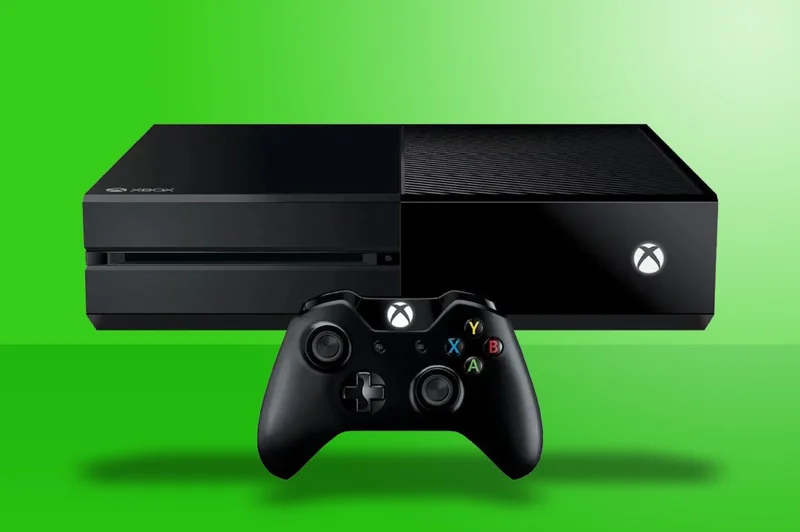Xbox Cloud Gaming and Fortnite: What's the Catch?
[Generated Title]: Xbox's Cloud Gaming Expansion: A Band-Aid on a Bullet Wound?
Microsoft's (MSFT) recent flurry of activity in the cloud gaming space raises a critical question: Is this expansion a strategic evolution, or a desperate attempt to salvage a floundering console strategy? The data, as always, offers a mixed, but ultimately concerning, picture.
The Cloud Gaming Push: Expansion vs. Impact
On the surface, the expansion of Xbox Cloud Gaming to Brazil, Argentina, and India seems like a positive move. More subscribers, more access, right? But let’s dig a little deeper. The core premise of Xbox Cloud Gaming is to allow Xbox Game Pass subscribers to stream games to their devices, bypassing the need for downloads or physical copies. This "Everything is an Xbox" strategy, as Microsoft calls it, is a direct response to the Xbox Series X|S's underwhelming performance (sales just above the original Xbox, and well below the Xbox One and 360).
The problem? Cloud gaming, while technologically impressive, remains a niche. Bandwidth limitations, input lag, and the simple preference for local gameplay (the tactile feel of a controller, the immediate response) are significant hurdles. Expanding the service geographically doesn't magically solve these underlying issues. How many new subscribers in Brazil and Argentina will actually become active, paying users, given the infrastructure challenges in those regions? It's a question Microsoft isn't eager to answer publicly.
And then there's the Fortnite factor. The arrival of Fortnite Crew to Xbox Game Pass Ultimate on November 18th, coupled with Fortnite's launch on Xbox for PC and Xbox Play Anywhere, is clearly designed to attract a younger, more digitally native audience. Fortnite Crew Comes to Xbox Game Pass Ultimate November 18 – and Fortnite Comes to Xbox on PC, valued at $11.99 a month, offers in-game rewards and access to passes across Fortnite and Rocket League. This is a smart move, leveraging the immense popularity of Fortnite to drive Game Pass subscriptions. But it also highlights a fundamental weakness: Microsoft is relying on someone else's content to bolster its platform.

PlayStation's Counter-Offensive: A Looming Threat
While Microsoft is busy expanding its cloud footprint, Sony (SONY) is quietly dismantling Xbox's key differentiators. The PlayStation Portal, initially dismissed as a PS5 remote play device, has evolved into a cloud streaming platform capable of running "thousands" of PlayStation games without a console. As of November 5, 2025, PlayStation Plus boasts 2845 streamable games, compared to Xbox Cloud Gaming's 2107 titles. This is not just a matter of quantity; it's about access to exclusive content. PlayStation has a treasure trove of exclusive titles (Bloodborne, for example) that aren't available on Xbox Cloud Gaming. (A critical point for dedicated gamers, and one that often gets overlooked in the broader tech press.)
Even more concerning is the potential for Sony to adopt a cross-buy ecosystem similar to Xbox Play Anywhere. Datamined symbols suggest that PlayStation is exploring "Cross Buy" and "PS5 / PC" tags for PSN Store listings. If Sony can offer Xbox users a direct way to buy games on PC, bypassing Steam's 30% cut, it would be a devastating blow to Microsoft's ecosystem. I've looked at hundreds of these industry rumors, and the consistency of the "cross-buy" leaks suggests something is in the works at Sony.
Microsoft's response to this threat has been... perplexing. Xbox President Sarah Bond calls exclusives "antiquated," and CEO Satya Nadella wants Xbox to be more like Microsoft Office, ditching platform exclusivity altogether. This is a radical departure from the strategy outlined by Xbox CEO Phil Spencer just a few years ago, when he emphasized the importance of exclusive games. The shift is so dramatic, it begs the question: Is Microsoft giving up on the traditional console war altogether?
The decline in consumer spending and the rise of short-form video are undoubtedly disrupting the gaming industry. But Microsoft's decision to abandon exclusivity and embrace cross-platform play seems less like a strategic adaptation and more like a capitulation. By removing key differentiators from the Xbox ecosystem, Microsoft is essentially inviting users to migrate to platforms with more compelling content libraries (namely, Steam and PlayStation).
Is Xbox Just Giving Up?
The numbers paint a clear picture: Microsoft's cloud gaming expansion is a band-aid on a bullet wound. While the company is expanding its reach and leveraging popular titles like Fortnite to attract new subscribers, it's simultaneously dismantling the core value proposition of the Xbox ecosystem. Sony, meanwhile, is aggressively targeting Xbox's key differentiators and building a more compelling platform for gamers. The long-term implications are grim: unless Microsoft course-corrects, Xbox risks becoming a second-tier player in the gaming industry.
-

XYZ Stock: Bullish Outlook and Buybacks – What's the Catch?
Block's$5BillionBuyback:So,Wh...
-

Warren Buffett's OXY Stock Play: The Latest Drama, Buffett's Angle, and Why You Shouldn't Believe the Hype
Solet'sgetthisstraight.Occide...
-

The Great Up-Leveling: What's Happening Now and How We Step Up
Haveyoueverfeltlikeyou'redri...
-

The Business of Plasma Donation: How the Process Works and Who the Key Players Are
Theterm"plasma"suffersfromas...
-

NJ's ANCHOR Program: A Blueprint for Tax Relief, Your 2024 Payment, and What Comes Next
NewJersey'sANCHORProgramIsn't...
- Search
- Recently Published
-
- Royal Caribbean Cruise: What's Driving The Stock Surge?
- Xbox Cloud Gaming and Fortnite: What's the Catch?
- MSTR: Stock Price, Bitcoin Holdings, and Key Drivers
- Spy Allegations: China vs. Philippines and the Reactions
- ETH6900: Vitalik's Meme Coin Dump and the Aftermath
- Shameless Accusations: What We Know and the Fallout
- NVDA Stock Surge: Revenue Beats Expectations and the Bullish Outlook – What Reddit is Saying
- IEA Report: Global Appetite vs. AI Impact
- Binance Under Scrutiny: Trump Pardon Controversy and Illicit Crypto Flows
- Target Stock Plunge: Earnings Guidance vs. Market Reaction
- Tag list
-
- carbon trading (2)
- Blockchain (11)
- Decentralization (5)
- Smart Contracts (4)
- Cryptocurrency (26)
- DeFi (5)
- Bitcoin (29)
- Trump (5)
- Ethereum (8)
- Pudgy Penguins (5)
- NFT (5)
- Solana (5)
- cryptocurrency (6)
- XRP (3)
- Airdrop (3)
- MicroStrategy (3)
- Stablecoin (3)
- Digital Assets (3)
- PENGU (3)
- Plasma (5)
- Zcash (5)
- Aster (4)
- investment advisor (4)
- crypto exchange binance (3)
- SX Network (3)
